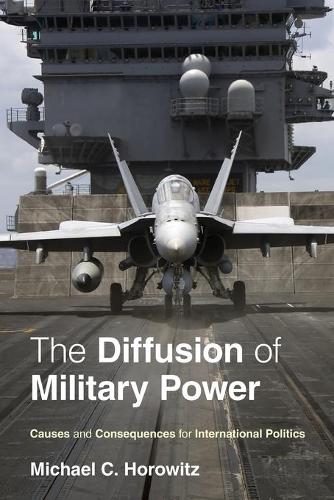
The Diffusion of Military Power: Causes and Consequences for International Politics
(Paperback)
Publishing Details
The Diffusion of Military Power: Causes and Consequences for International Politics
By (Author) Michael C. Horowitz
Princeton University Press
Princeton University Press
28th September 2010
United States
Classifications
Tertiary Education
Non Fiction
Warfare and defence
327.117
Winner of International Studies Association International Security Studies Section Best Book Award 2011
Physical Properties
Paperback
264
Width 152mm, Height 235mm
397g
Description
The Diffusion of Military Power examines how the financial and organizational challenges of adopting new methods of fighting wars can influence the international balance of power. Michael Horowitz argues that a state or actor wishing to adopt a military innovation must possess both the financial resources to buy or build the technology and the internal organizational capacity to accommodate any necessary changes in recruiting, training, or operations. How countries react to new innovations--and to other actors that do or don't adopt them--has profound implications for the global order and the likelihood of war. Horowitz looks at some of the most important military innovations throughout history, including the advent of the all-big-gun steel battleship, the development of aircraft carriers and nuclear weapons, and the use of suicide terror by nonstate actors. He shows how expensive innovations can favor wealthier, more powerful countries, but also how those same states often stumble when facing organizationally complicated innovations. Innovations requiring major upheavals in doctrine and organization can disadvantage the wealthiest states due to their bureaucratic inflexibility and weight the balance of power toward smaller and more nimble actors, making conflict more likely. This book provides vital insights into military innovations and their impact on U.S. foreign policy, warfare, and the distribution of power in the international system.
Reviews
Winner of the 2011 Harold D. Lasswell Prize, Society of Policy Scientists Winner of the 2011 Best Book, International Security Studies Section of the International Studies Association Winner of the 2010 Edgar S. Furniss Book Award, Mershon Center for International Security Studies
Author Bio
Michael C. Horowitz is assistant professor of political science at the University of Pennsylvania.
